Understanding and Caring for Wraps
The Wrapping Properties of Different Fibre Blends
Wraps can be woven from different fibres, and each will give the wrap slightly different properties. This is a quick guide to choosing the right fibre blends for you!
All our wraps are woven with an organic combed cotton warp. This gives the wrap strength yet silky softness. We have lots of different weft yarns that we can then weave through that warp to create our cloth. We sometimes use multiple types of weft yarn to create a more complex fibre blend with unique properties, but this will give you an overview of the main fibres we use.
100% Combed Cotton
Firespiral ‘all cotton’ wraps are great all-rounders, they work well from newborn to the end of wrapping. Our organic combed cotton is buttery soft and perfect against the delicate skin of a newborn, but it is also strong and easy to wrap well with, meaning it works well for a bigger child, especially in multi-pass carries.
Not all cotton wraps are the same. Weave, yarn thickness, source and pattern affect wrapping quality, so if someone tells you that the cotton wrap they tried was not ‘toddler-worthy’ you need to find out a little more from them – what make was their wrap, what thickness, weave and type of cotton was it?
Also, how is their wrapping? Wrapping ability is a better indicator than blend of how comfortable a wrap job you can get. If a wrap is easy to use, you are likely to manage a better wrap job which will then be more comfortable for you both! You will have found it simple to tighten the wrap fully and evenly around you, and won’t have trapped pockets of slack that work their way through the cloth and cause sagging. If you’d like to read more about our relationship with cotton and why we love it so, read this blog post.
Our synergy weave cotton wraps are generally thicker cloth with a higher GSM. This makes them very supportive and cushioning on your shoulders. They don’t have the same amount of stretch and recoil as the silky soft feeling Alchemy cotton wraps, so they don’t wrap quite as smoothly and snugly, but are forgiving of an imprecise wrap job! Alchemy wraps will do exactly what you want them to, making them effortless to wrap with, and they have a fluid drape and shimmery smooth warp face. Some Alchemy weave wraps are thin, others are chunky, but all wrap with ease and take minimal breaking in. Elements cotton wraps are a mid point between the other two!
Some facts about our cotton wraps:
- They are easy-care, every-day wraps that can be machine washed at a high temperature (if needed) and tumble dried. We suggest a 30 degree delicates wash only to preserve the silky texture of the warp cotton, but the cloth can withstand much rougher treatment.
- Cotton is soft and gets softer with use (think of your favourite pair of jeans).
- Cotton is strong, and with the right weave can be very moulding to wrap with.
- A thick, soft / well broken in wrap will be more forgiving of an imprecise, rushed wrap job.
- The right cotton wrap can take you from birth through to school.
- We use combed, plied cotton. Combing the cotton lines up all the long individual fibres that make up the thread and gets rid of the smaller ones for a high-quality thread that is naturally softer and more resilient. Plying is the process of taking two or more thinner threads and twisting them together into one strand. It creates a higher tensile strength without extra bulkiness.
- All our cotton is either certified organic, or grown under strict ecological conditions, protecting local environments and workers.
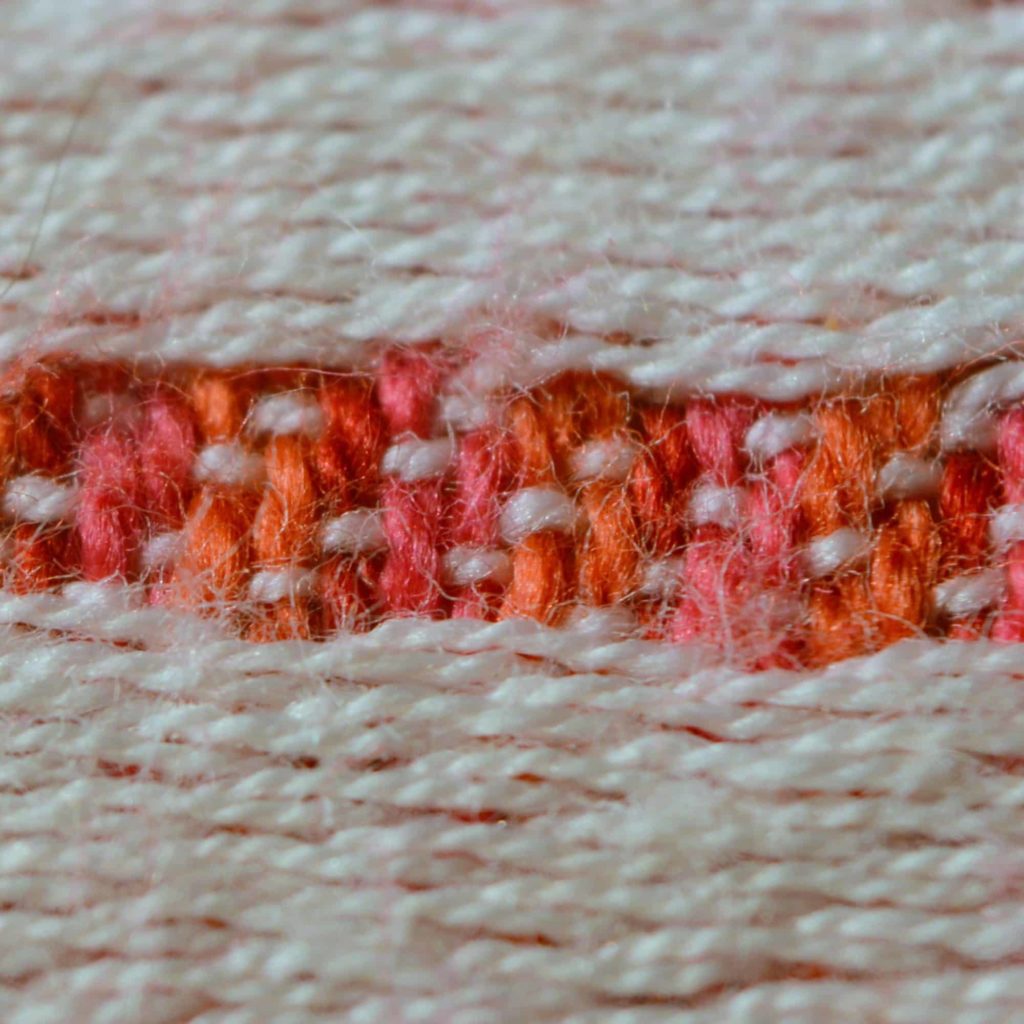
Blends of non-cotton fibres can offer a different wrapping experience, but like cotton, not all wraps which have the same blend will offer the same wrapping experience. Weave, yarn and pattern are all variables that will change the wrapping properties alongside fibre blend.
Wool Blends
Generally – wool adds bounce and cushioning to a wrap but can mean more specialised care is needed, especially with washing. The higher the percentage of wool the more susceptible to felting the wrap is, and you must follow the specific wool washing instructions. Nearly all of Firespiral’s wool-blend wraps are machine washable on a wool-specific machine cycle.
- Thinner wool blend wraps are great from newborn, and the thicker 50% merino wraps are the absolute best for comfortable wrapping of big toddlers and preschoolers.
- Merino is naturally hypoallergenic and cooling. Cashmere is incredibly soft. We often use yarns that have a blend of both wool and cotton fibres in the thread, which helps to stabilise the wool and make it less susceptible to felting, whilst still having the lovely properties of wool.
- When people find wool irritating to the skin, it is often the lanolin on the fibre that is causing this, rather than the wool itself. Natural oils are used to coat the wool and protect it during weaving. These need to be washed away properly in order for the wool to fluff up and feel soft. This can create a dramatic change in the cloth. When people worry that they’ve felted their wrap, they’ve often just washed it properly and allowed it to bloom into it’s woolly magnificence!
- Thicker wool is great for keeping warm in the colder seasons, and also sheds rain really well, repelling water on it’s surface but (surprisingly) thinner wool is amazing in the heat of summer. It has great temperature regulating properties that really work to help you keep cool.
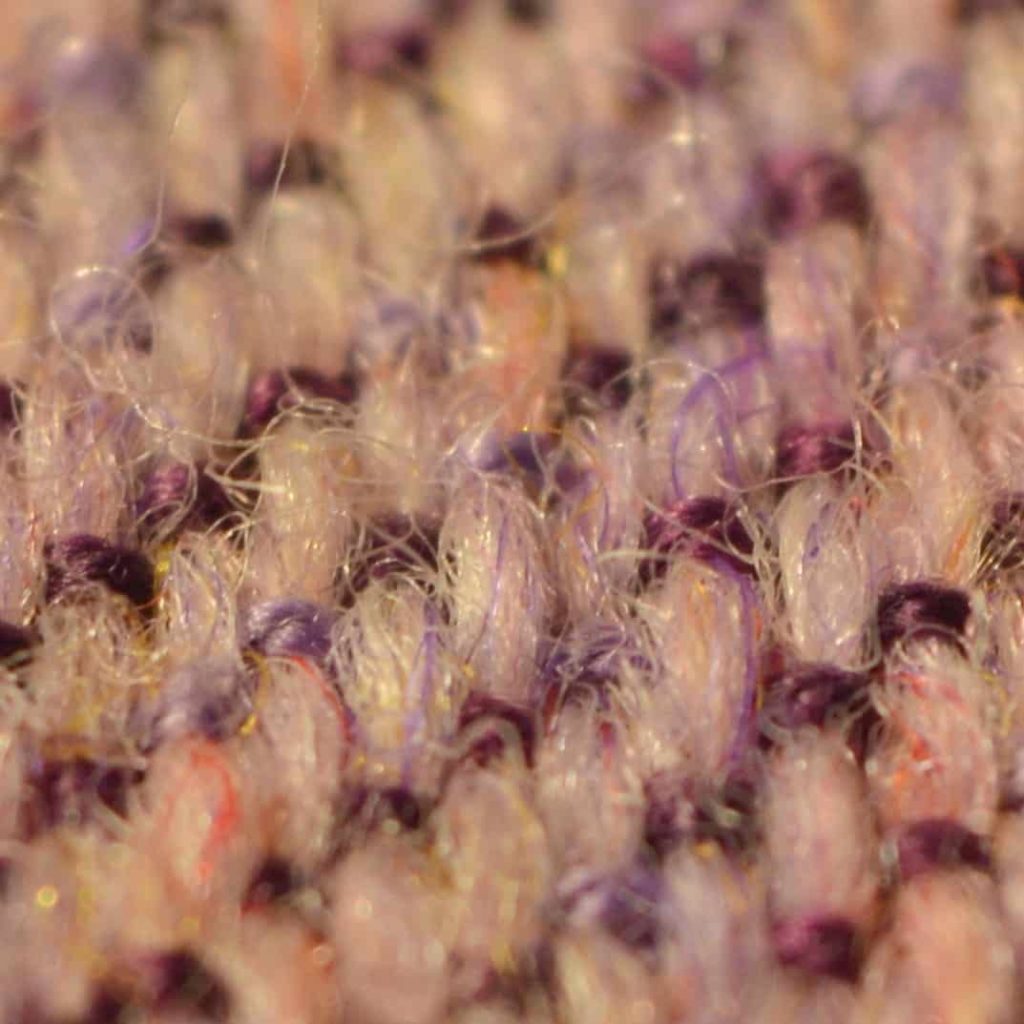
Linen Blends
Generally, linen provides a solid wrap job with less bounce. The naturally long, linen fibres have less stretch to them, so all the ‘slack’ can be tightened out of a linen wrap quite quickly, and this can give the effect of them being ‘stronger’ or more supportive. It can also lead to overtightening, or uneven tightening which feels ‘diggy’ in places.
- Linen wraps feel cool to the touch because the hollow fibres absorb moisture and allow it to evaporate, creating a cooling effect. Its molecular structure allows linen cloth to absorb as much as 1/5 of its weight before giving a feeling of being damp or wet.
- Linen blend wraps can be prone to creasing from washing and wear, so need to be ironed regularly to prevent creasing. Linen wraps can be quite crunchy feeling when new, but they soften to a buttery softness with use.
- Linen yarn often has a lovely shimmer to it.
- Thinner linen blend wraps are great all-purpose wraps and will work from birth to the end of wrapping, thicker linen blend wraps are great for heavier children – creating a solid, un-moving carry, perfect for holding wriggly toddlers.
Linen can be machine washed and tumble dried, and likes a good steam iron, or to be ironed when still damp.
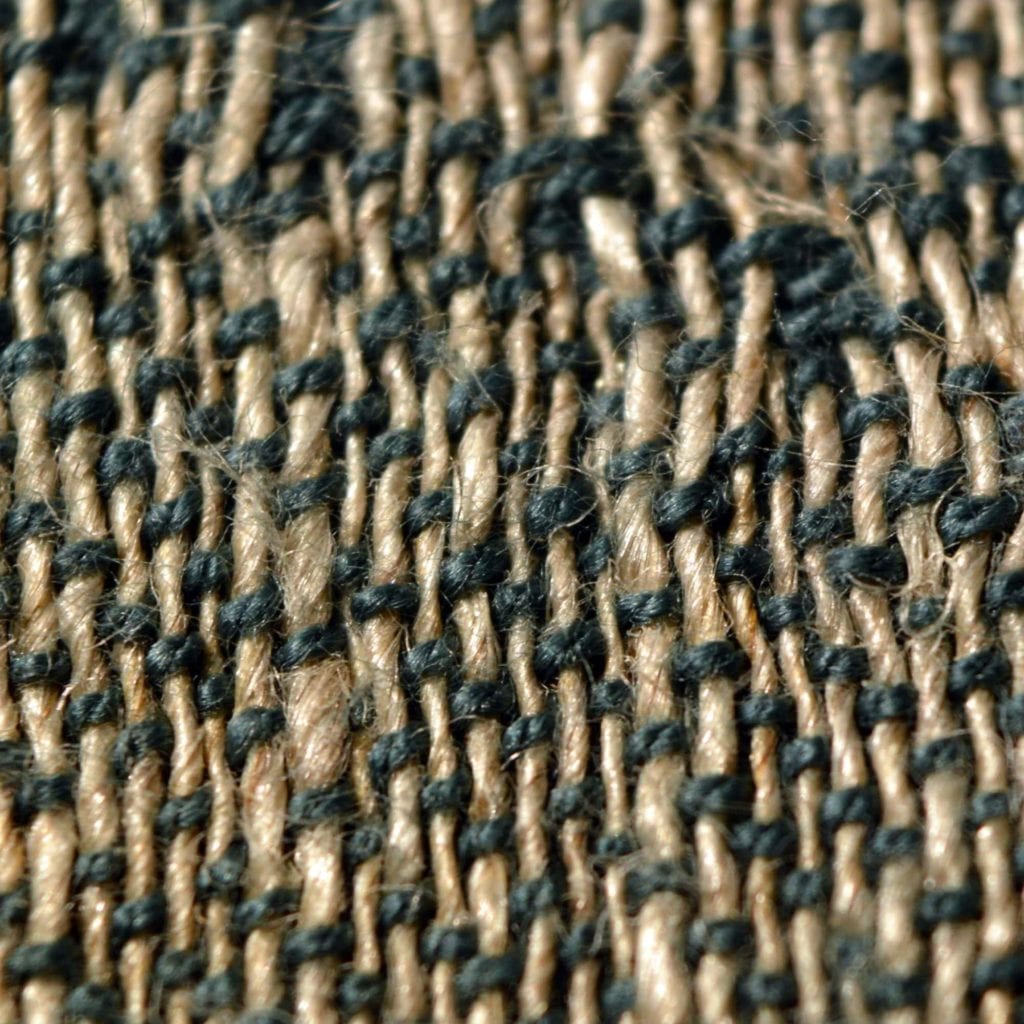
Hemp Blends
Hemp fibre is one of the strongest and most durable of all natural textile fibres. Not only is hemp strong, but it also holds its shape so does not crease like linen blends can.
- It softens with use, without losing its strength.
- Hemp is also naturally resistant to mould and ultraviolet light. The hemp that we usually use at Firespiral is a slub hemp, meaning that the yarn varies in thickness across its length. We love the look and texture that this provides to our wraps.
- Hemp is a very porous fibre, meaning it takes up dye amazingly well producing great quality of colour. This porous nature allows hemp to “breathe,” so that it is cool in warm weather, conversely, air which is trapped in the fibres is warmed by the body, making hemp blend wraps naturally warm in cooler weather.
- Thinner hemp blends are great all-purpose wraps and will work from birth to the end of wrapping.
Hemp can be machine washed and tumble dried.
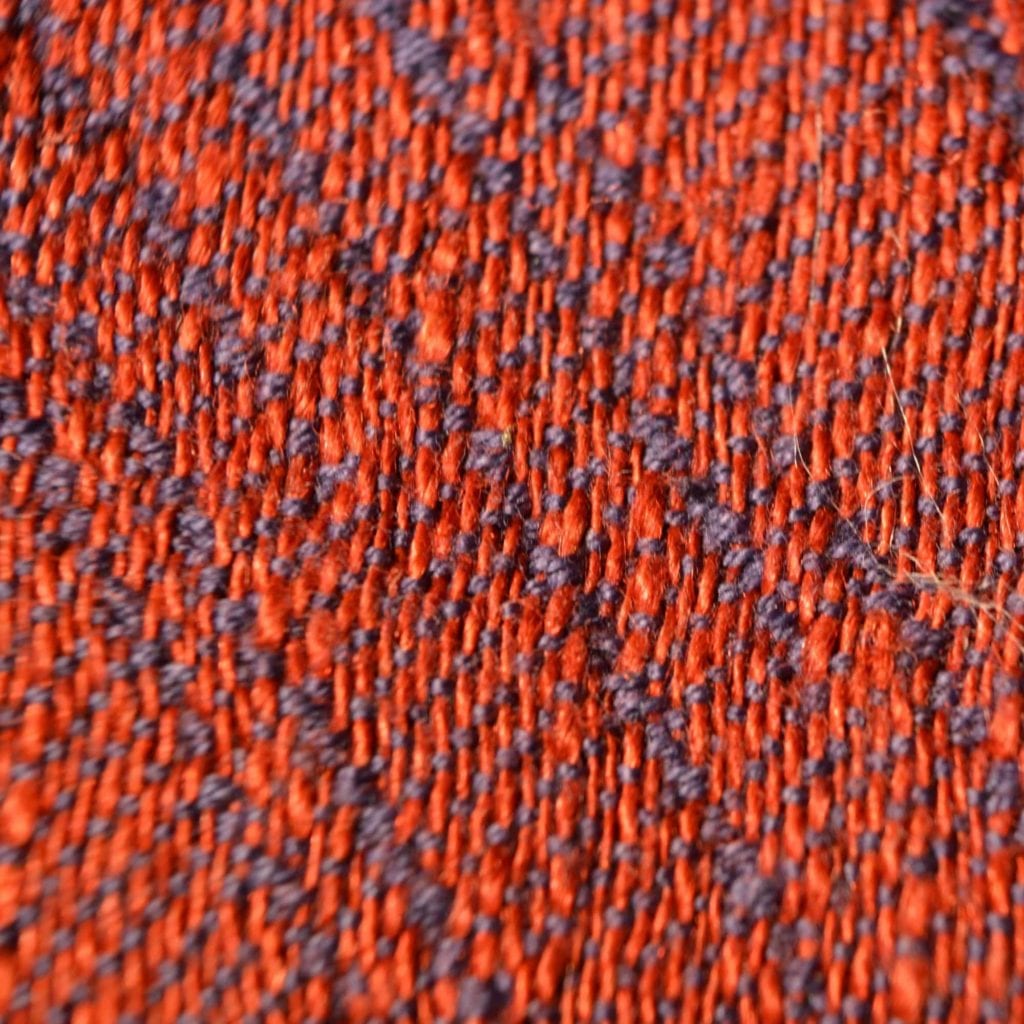
Viscose blends
Viscose is the only synthetic fibre that Firespiral currently use- in that it isn’t naturally occurring, but is made from naturally growing materials. It is a cellulose fibre- like cotton, linen and hemp- and ours is man-made from tree pulp.
- Viscose adds incredible softness and stretch to wraps. It is often teamed with linen, as it balances out the solidity and crunchiness of the linen, but on its own, as a weft, it produces a wrap that wraps incredibly easily and is very supportive for its comparative light weight.
- Viscose is more absorbent than cotton, meaning that it is hot weather friendly, absorbing and evaporating sweat for the wearer. It has beautiful fluidity and drape.
Viscose can be machine washed and tumble dried.
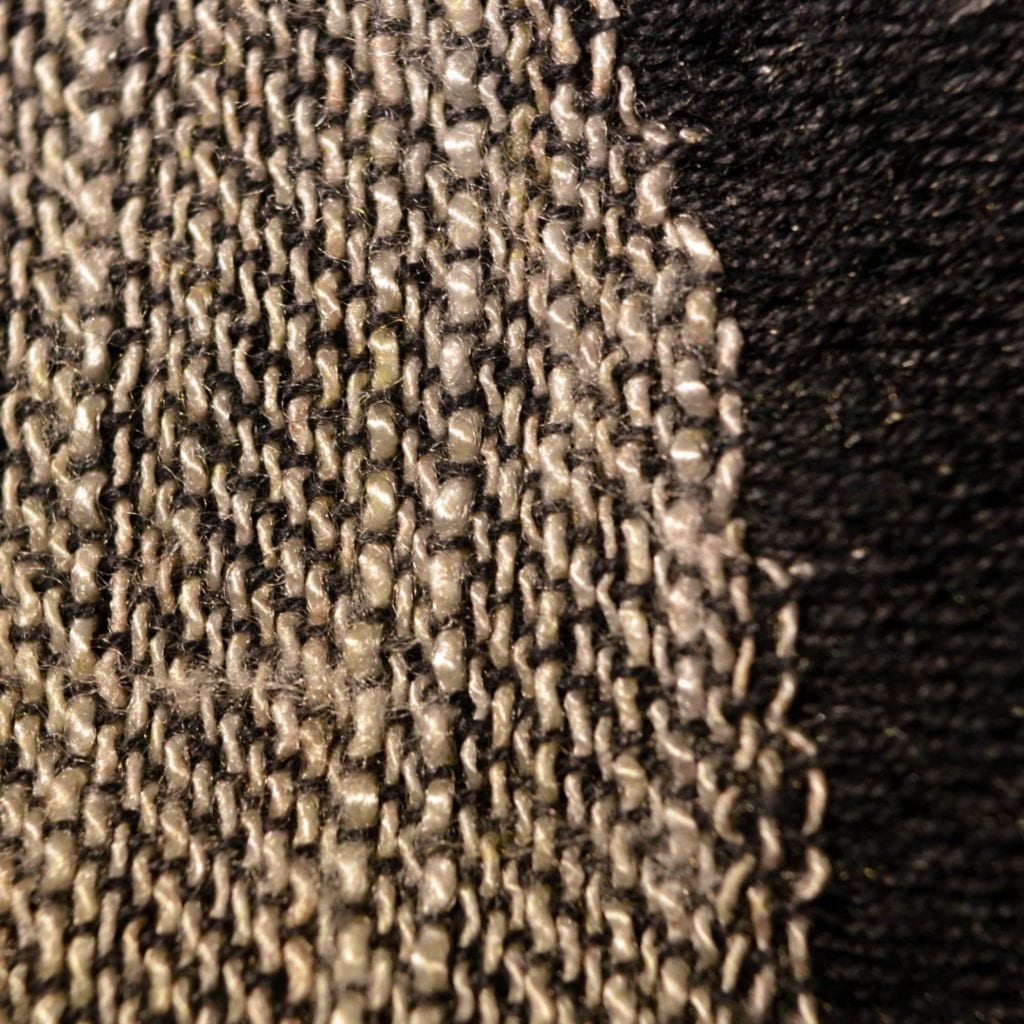
Here are some photos of wraps where we have mixed our wefts to stunning effect, a recipe for wraps that make the most of the various properties that each fibre offers.
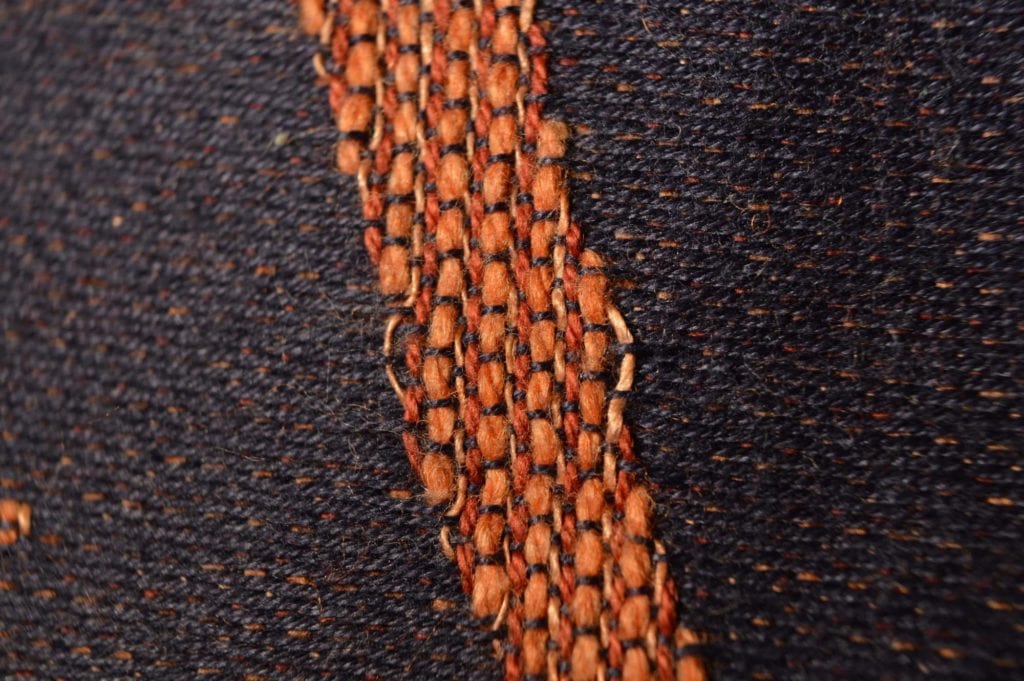
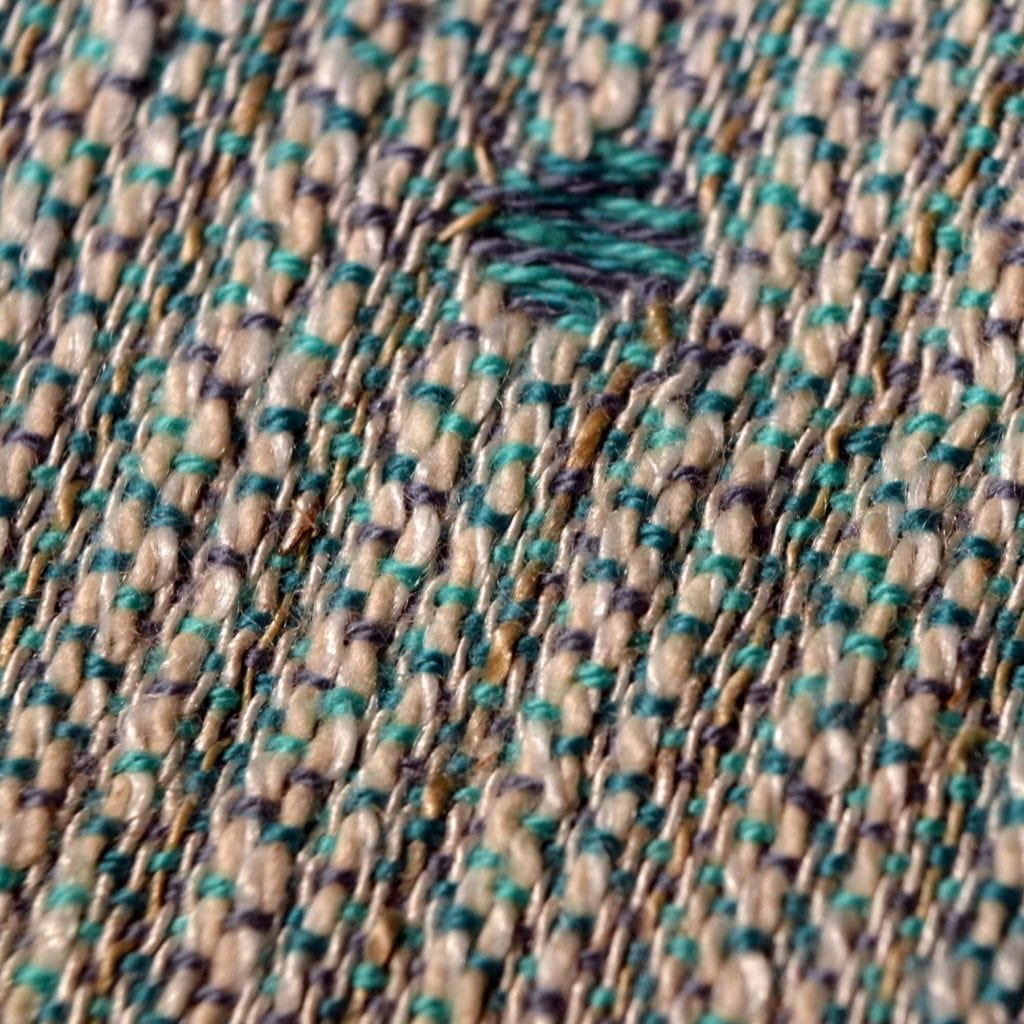
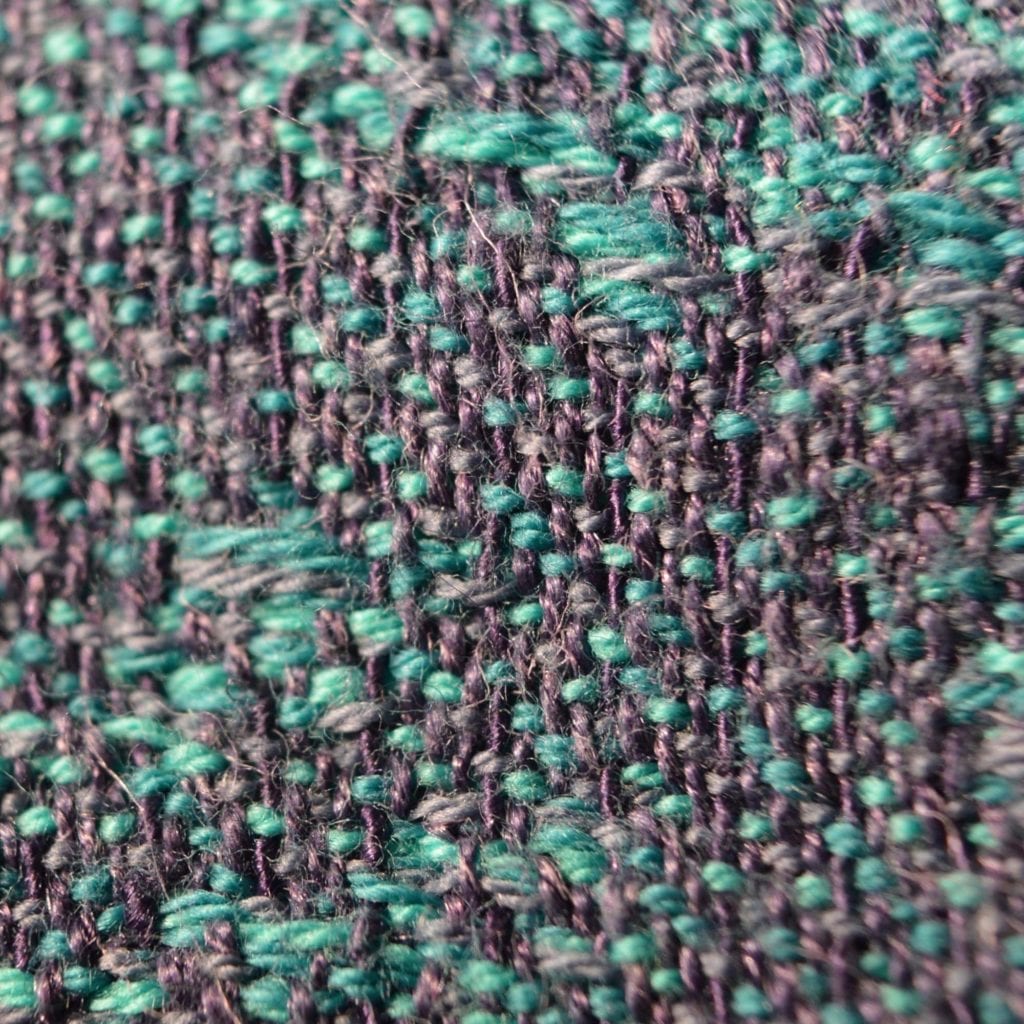
The trick when choosing a fibre blend is just to find something that complements your wrapping style and that you enjoy using! The more you use a wrap, the more adept you will become at working with it’s unique properties, and maximising the comfort and support it has to offer.